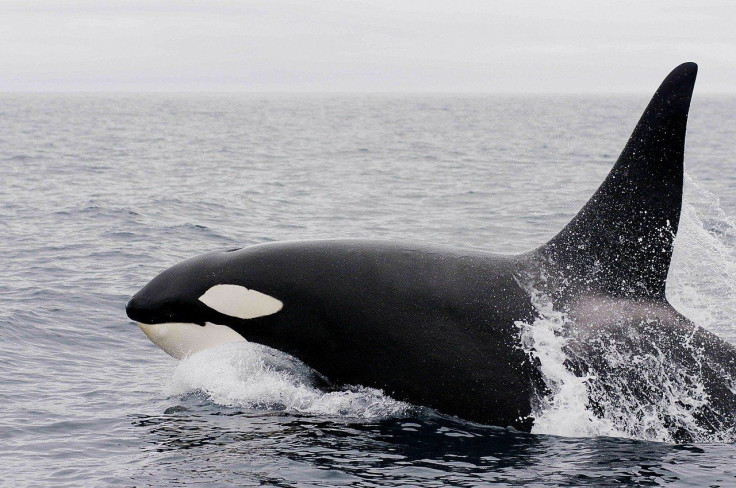Great White Shark And Killer Whales Face-Off In Rare Aerial Footage [Video]
KEY POINTS
- The event unfolded in the Mossel Bay harbor in May
- A coordinated attack by a group of killer whales was captured
- The killer whales killed at least two other white sharks that day
In the world's first aerial footage, killer whales can be seen eating white sharks in a concerted hunting strategy.
The rare footage was taken by two contributors -- a helicopter and a drone. A paper was published, based on the footage, in the journal Ecology.
"This behavior has never been witnessed in detail before, and certainly never from the air," lead author and marine scientist Alison Towner from Rhodes University in South Africa said.
The hunt captured on camera is said to be unique because only three documented killings of white sharks by orcas or killer whales were reported till now.
The event unfolded in the Mossel Bay harbor on May 16 in the afternoon. An amateur drone pilot caught glimpse of a white belly in the blue waters and decided to follow its movements.
What the drone captured was a display of a coordinated attack from a group of killer whales. The group saw two of its members split and move towards the east in the direction of the local river's mouth, a place of known shark activity. Two other killer whales started swimming together near the ocean's surface in opposite directions, giving the impression of a lookout.
Coming in with the kill was the fifth orca that emerged between the two patrolling orcas. The fifth orca seemed to be nudging a three-meter-long white shark, belly up, to the surface with its nose. The orca then went on to bite the shark into its belly behind its pectoral fin, after flipping it to its side. Blood soon filled the area, marking the hit.
One of the patrolling orcas then took a deep dive, taking with it the carcass of its prey, to be obscured in the ocean.
Later, the analysis found that one of the killer orcas was a repeat offender, having been implicated in the killing of a series of shark carcasses found on South Africa's beaches.
"I first saw Starboard in 2015 when he and his close-associated 'Port' were linked to killing seven-gill sharks in False Bay," co-author David Hurwitz, a boat-based whale-watching operator from Simon's Town Boat Company, said. "We saw them kill a bronze whaler [copper shark] in 2019 – but this new observation is really something else."
Snaps taken from the helicopter suggest that the killer whales killed at least two other white sharks that day.
"Two video sequences at 14h 07 and 14h 27 showed two different killer whales (Starboard in the first clip) closely following large white sharks at <1 killer whale body length. In both clips, the sharks displayed evasive behaviors, circling back tightly with the whale following, but both moving slowly," researchers wrote.
In one of the photos, one of the orcas could be seen feasting on what appeared to be a big white piece of shark liver.
Minutes after the event, white sharks were seen leaving the area, as witnessed by beach-based observers and the drone pilot. After that day, hardly any sharks were observed in that area for weeks.

© Copyright IBTimes 2025. All rights reserved.





















